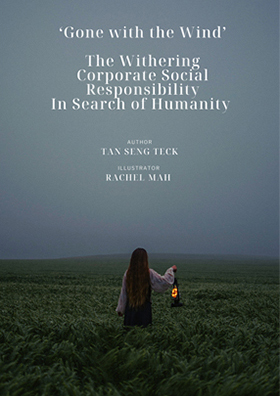PREFACE
I wrote this book out of frustration, disappointment, and discontent with globalization, geopolitical crises, gapping economic status, and the endemic that still haunts us today. The two years of lockdown, semi-lockdowns, and the flip-flopping control movement orders, left me pondering the meaning of humanity. Life has not been this treacherous as I remember. I keep reflecting on the peace of yesteryears where humans were not in loggerheads, countries at harmony, and corporations abiding to ethics. A few decades ago, we do not drink from vigorously filtered water, or worry about the quality of air we breathed. Macdonald meals came in appetizing portion in comparison to the scaled down versions of their modern successors. We had bigger spending power and life was simpler.
Things are radically different now. We wear masks religiously, as if they are part of our daily rudiment. We sanitize our hands every time we shake another. Going for concerts risks getting life threatening infectious diseases. We stay away from others, maintain social distance and celebrate festivities at home.
Humans received adequate warnings. The H1N1, SARS, and Ebola are precursors of more sinister diseases to come. But all these foretells fell on deaf ears. Humans are ignorant, stubborn and they resist change. Corporations boast of astronomical profits as income gaps widened. Government lost control of their own turf, crippled by imperializing corporations.
We often hear of global warming, climate change, and their throbbing threats. I have been learning about environmental woes for decades but things only got worst. There were no major revamps in public policies, and it was business as usual for many corporations. At the height COVID-19, many cry for a reset, and some prophetically proclaim the end of the world. The COVID-19 is ‘supernatural’. It tames large corporations and puts government into a trial of fire. It singlehandedly de-globalized the world, almost relegating humankind to Iron Age. Neither my 85-year-old mom nor I have encountered a crisis of this magnitude. A crisis that seems to stop the world spinning. Everything stood still. Flights were grounded, borders closed and at the height of the crisis, we were literally imprisoned at home. Corporations gasped for assistance, and despite the aid, many did not make it. Deaths from COVID-19 were breaking records on a daily basis, and my dad unfortunately added to the statistics of casualties.
Yet, humans are ignorant. We hear corporations profiteering from vaccines, selling fake medicines, offering overpriced masks, and disseminating confusing fake news that caused misjudgments during the pandemic. The United States continued itstrade wars with China, and at the height of the pandemic, Russia attacked Ukraine, disrupting the supply chain, causing crude oil shortages and ramping up inflation. Facebook and media have become the bearer of bad news, bombarding us daily with depressing updates of calamities. Corporations are on a mission drift and are estranged from business ethics.
I teach business ethics at undergraduate and postgraduate levels. As I teach, I begin to realize the inadequacies of corporate social responsibility as the reviver of business ethics. I fervently condemn their theories and shortfalls in class, leaving students perplexed over my emotional repulse. I am writing this book as a critique of corporate social responsibility, and I stamp the point that it is becoming or already has become an impotent dogma. Cunning corporations manipulate it to their advantage and obscure the public on their dutiful compliance. I argue that the damage corporations inflict is far greater than our recompense. It is not even a contest.
This book is written in a no-nonsense and straightforward fashion. It provides a piercing critique on the dwindling business ethics. Every page in this book rewards readers with sensational revelations, and its 100-page long thesis instills readers with heart pounding arguments. Those teaching this subject may share or dissent from my critique, but throughout this work, readers may find new provinces of research, and academic gaps that warrant further attention.



